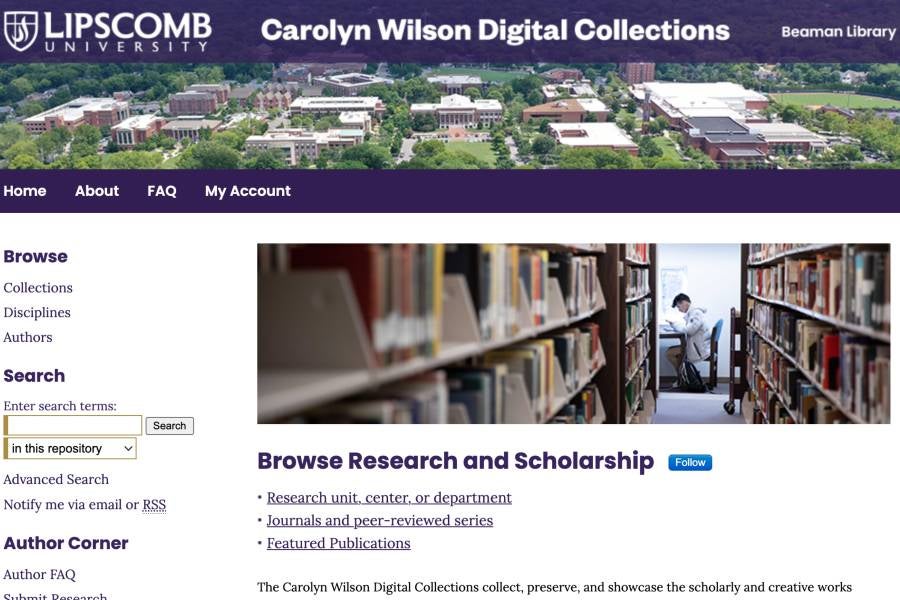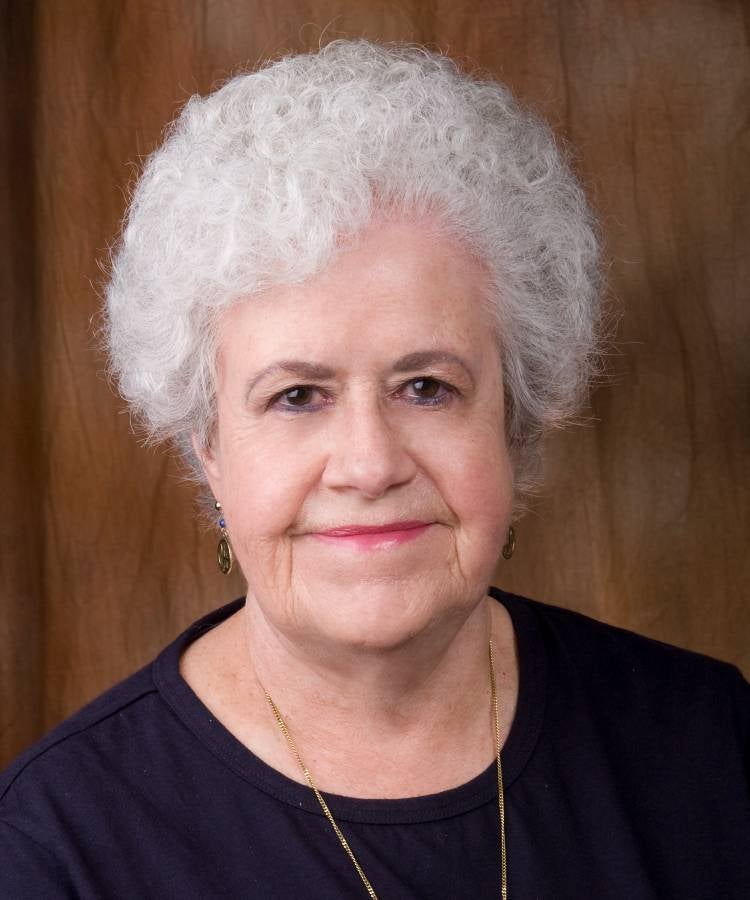Digital archives expand Lipscomb’s reach and honor former library director
Abigail McQueen |

Among the many resources Beaman Library provides to the Lipscomb community, one of its largest undertakings is the creation of the Carolyn Wilson Digital Archives.
The Carolyn Wilson Digital Archives is an institutional repository (IR) of research, writing and scholarly and creative works produced by Lipscomb faculty, students, staff and affiliates. The IR is accessible to anyone on the internet. While the library currently has a physical archive, the Robert E. Hooper Archives and Special Collections, the IR is meant to make research and memorabilia more accessible to a wider audience. The Carolyn Wilson Digital Collections are dedicated to long-term, open access to works submitted in concordance with the University’s goal of promoting research. The institutional repository is a service of Lipscomb Libraries.
“Sometimes we have things in our archives we put in our IR so you don’t have to come to Lipscomb as a researcher to see them,” says Julie Harston, director of library services in Lipscomb’s Beaman Library.
The IR contains six categories: creative works, department-created projects, highlights of campus events, special collections (including memorabilia related to school history), open-access journals, and highlights from conferences. The special collections include digitized volumes of featured publications, including the Backlog and other yearbooks and the Babbler student newspaper. Alumni may scan through publications from their years at Lipscomb online from anywhere in the world through this digital feature.

Carolyn Wilson
“We can do a little bit of everything,” says Michaela Rutledge, Beaman’s electronic resources librarian.
The archives are named for the late Carolyn Wilson, a library director and a committed member of the Lipscomb community. For 34 years, Wilson was part of the Beaman Library faculty. In 1980, she joined the faculty as collection development librarian and after having served as interim for a year was appointed director of the library in 1999. It was a role she held until her retirement in 2014. During Wilson’s tenure, the library implemented a state-of-the-art online catalog and reorganized its resources. However, one of her greatest contributions was her work to strengthen Lipscomb and Beaman Library’s reputation within the Nashville book community.
“She loved learning, so we named the IR in honor of her,” says Harston, who was hired by Wilson. “We are putting things in there that have to do with the academic outcomes and historical records of Lipscomb.”
When choosing what to put on the IR, the library staff ensure that their collections are unique. “We don’t want to waste a lot of time on something if it’s already out there on the internet,” says Jan Cohu, Beaman’s system’s librarian. Instead, the staff and archivists do extensive research before preparing a collection to place online.
In honor of Black History Month, the library is working on uploading Nashville Christian Institute (NCI) photos and school records into the IR. NCI was an African-American preparatory school associated with the Churches of Christ located in Nashville from 1940-67. NCI student records are now being digitized and uploaded to the IR.
The IR can also house digitized audio recordings, such as the Confessing Church tapes from Germany. The tapes contain interviews with Germans who opposed Hitler during 1937. The interviewees speak about their lives and experiences under Hitler’s regime. As many of the interviews were conducted in German, they are currently being transcribed.
To allow for the highest quality of resources possible, donor funds were used to purchase a scanner for photographs and physical papers. The scanner has many special features, such as the ability to remove the glare from photographs encased in plastic. This allows high-quality uploads to the IR while also giving the library the ability to preserve its resources.
In the IR’s first year of operation, there have been over 30,000 downloads across 155 countries. All the materials on the IR are branded with Lipscomb’s name.
“You will not believe how many people this brings to your campus,” Harston says. “It’s a promotion tool and a sharing tool.”
Visit the Carolyn Wilson Digital Archives here.